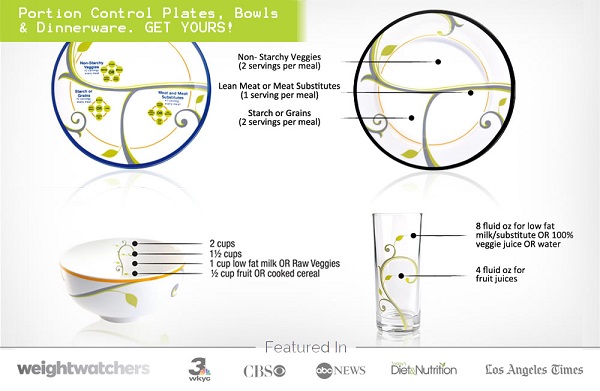Constipation is the difficulty or infrequency of having a bowel movement. Quite simply, it means that one does not go to the toilet as often as they should. Our digestive system after digesting the food that we eat and getting all the nutrients needed by the body collects all the undigested material along with waste products from digestion which combines to form the fecal waste which is stored in the colon. When a person is constipated, the fecal waste is not expelled as often and it accumulates in the colon which can result to other health risks. Constipation can have several causes including dehydration and insufficient intake of take of dietary fiber as well as stress. Normal constipation does not pose a danger to your health. However, being constipated often or having what medical practitioners would call as chronic constipation can lead to serious health problems.
Increase in Blood Pressure and Heart Attack
Hypertension or high blood pressure indicates that the pressure of the blood flowing through a person’s arteries is relatively higher than normal. Due to the greater pressure, the arterial walls can be damaged making them more susceptible to cholesterol buildups. When cholesterol builds up in damaged arterial walls, plaques along with blood clots form which lead to blockage of arteries disrupting normal blood flow. Blood flow to the heart is compromised and oxygen (coming from the blood) deprived tissue die in the long run resulting to a myocardial infarction or heart attack.
Hypertension cannot be caused by constipation. There is no scientifically proven causative relationship between constipation and hypertension-and as a related condition, heart attacks. The brief increase in blood pressure observed can be a result of the straining involved during defecation when one is constipated. The association between hypertension and constipation may be attributed to the diet and lifestyle of people diagnosed with hypertension. Stress and a high salt and fatty diet can cause constipation and also lead to an increase in blood pressure and as a result, an increased risk for heart disease.
Formation of Hemorrhoids
Hemorrhoids are large purple masses that can form in the anal canal as a result of rectal vein dilation and rupturing. They can be classified as external or internal based on their location. External hemorrhoids can be found outside the anal canal as grape-like protuberances which release mucus. Internal hemorrhoids are found inside the anal canal. When a person is constipated, hemorrhoids may develop as a result of straining to get the fecal waste out of the anus. As a person forcefully tries to defecate, the rectal veins begin to dilate and may rupture which can develop into hemorrhoids and cause painful bowel movement.
Fecal Impaction and Colon Toxicity
The colon is responsible for the last phase of digestion which includes the reabsorption of most of the remaining fluid in undigested food to produce fecal waste. When there is constipation, fecal waste is not discharged immediately and stays in the rectum and the terminal or end portion of the colon, the sigmoid. As fecal waste remains in the rectum and sigmoid, fluid is reabsorbed resulting to its hardening which would prevent further passage of fecal waste called as fecal impaction. As fecal waste also contain bacteria and waste materials from digestive organs, its continuous accumulation can lead to dilation and rupture of the colon resulting to the release of waste materials and naturally occurring digestive bacteria in the abdomen otherwise known as toxic megacolon. In addition, fecal impaction can also irritate the lining of the colon which can result to an infection.
Rectal Prolapse and Anal Fissures
Rectal prolapse or the protrusion of the rectum to a point where it is seen externally outside the anus can be a consequence of chronic constipation. It usually appears as a proboscis like protrusion through the anal sphincter muscles. During defecation, fecal waste is pushed out of the rectum, the part of the colon which immediately follows the sigmoid and out of the anus. When there is constipation, fecal waste hardens which makes it relatively difficult for it to pass through. When constipation becomes chronic and there is constant straining in order to defecate, the rectum may eventually slip off from its normal position and protrude out of the anus. Oftentimes, the protrusion is temporary and goes back to normal after bowel movement. However, in some cases, the protrusion becomes permanent and may have mucosal discharge. Though not life-threatening, the condition can be embarrassing for the person suffering.
Anal fissures or tears in the lining of the anal canal can be caused by straining during defecation when there is constipation. Normally, when there is bowel movement fecal waste easily passes through as the anal sphincter muscles relax because the stool is relatively soft retaining some amount of fluid even after digestion. As fecal waste accumulates in the sigmoid and rectum during constipation, water is continuously reabsorbed and stool hardens. Thus, it become relatively difficult for the hard stool to pass through and straining to forcefully defecate can result to tearing of the anal canal and painful bowel movement.
Tip:
Diet is, as always, paramount. A slightly alkaline diet full of fresh produce detoxifies the endocrine system and keeps it healthy. Constipation is much more dangerous to individuals who are already hypertensive. Look for high-fiber DASH diet recipes.







 We're committed to bringing you the best in health and helping you discover the wonderful world of the DASH diet. If you're looking to control your blood pressure, hypertension, or just looking to get into great health, we're here to help.
We're committed to bringing you the best in health and helping you discover the wonderful world of the DASH diet. If you're looking to control your blood pressure, hypertension, or just looking to get into great health, we're here to help. 



